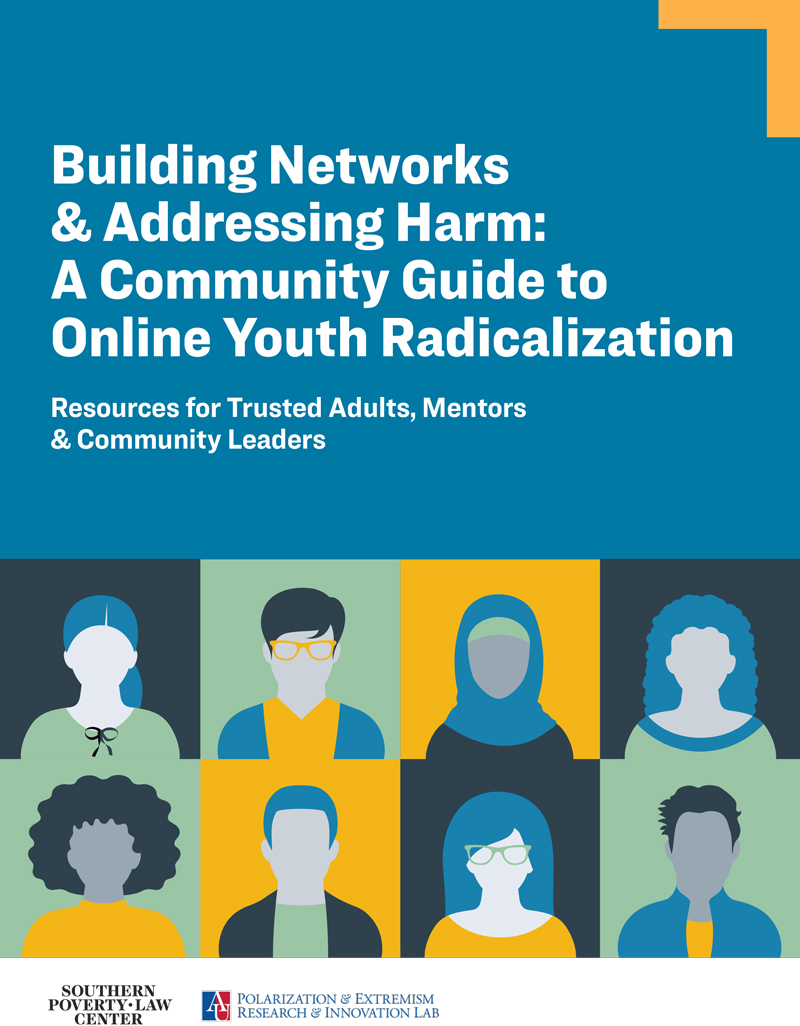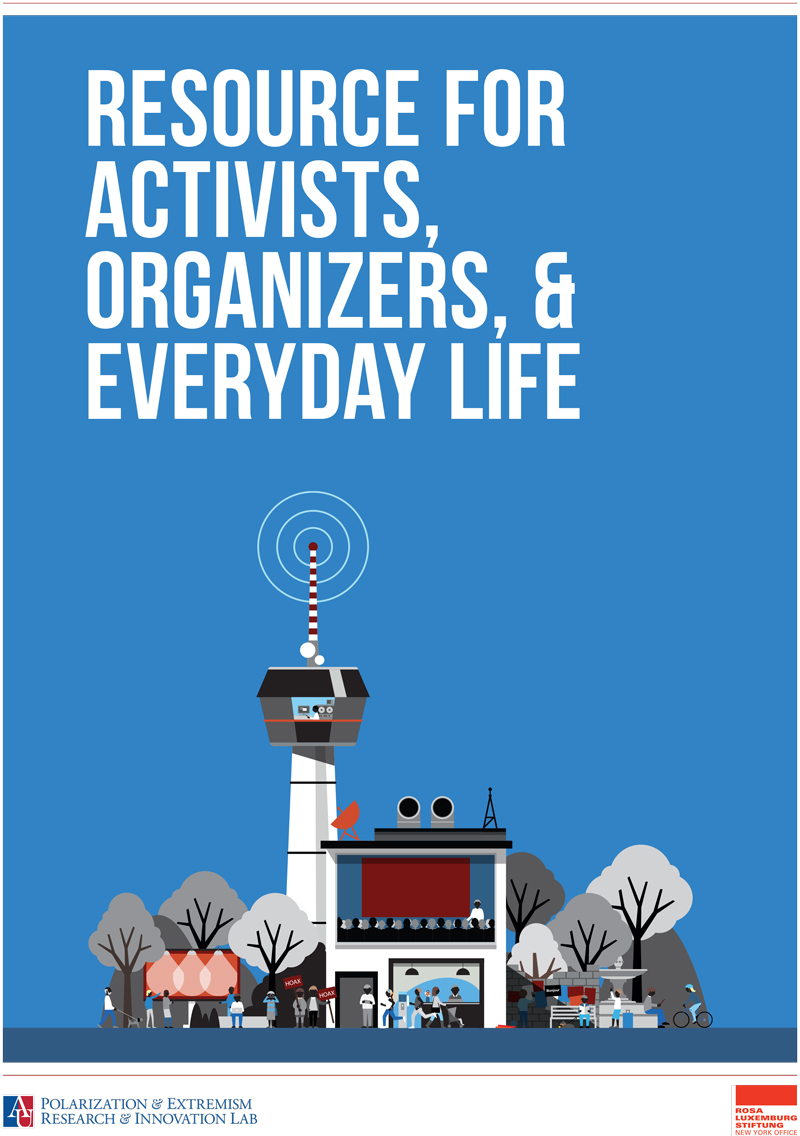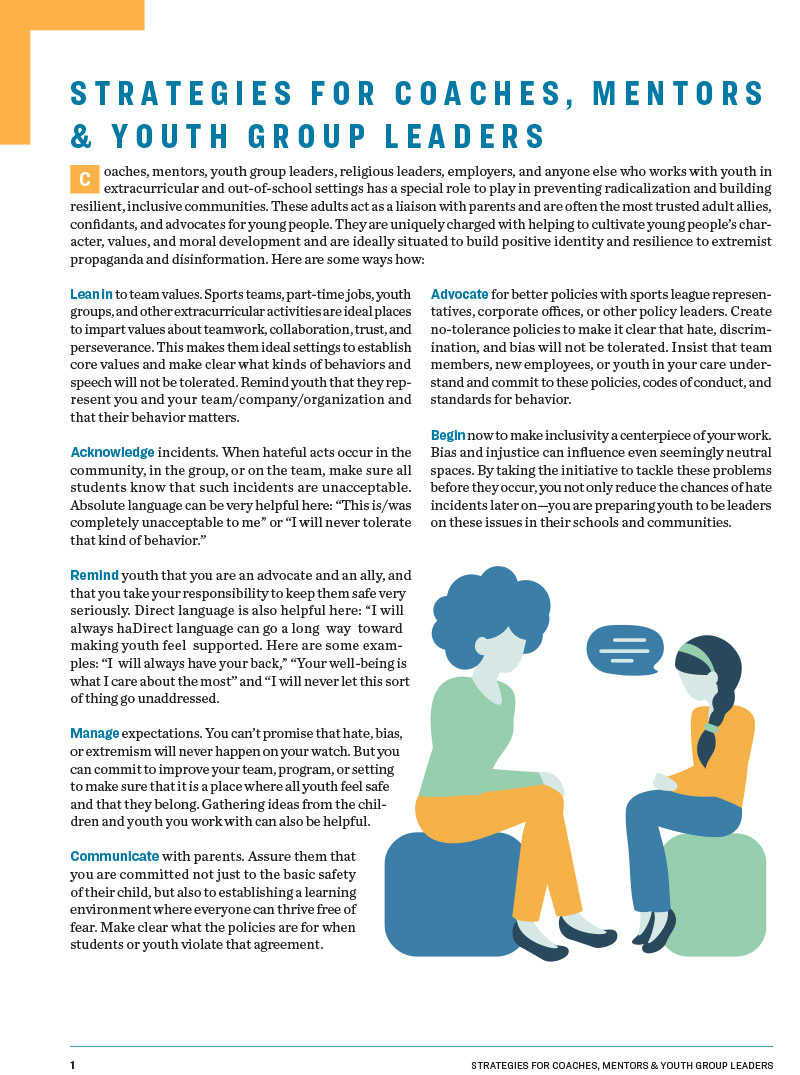Get informed by regularly reviewing and watching videos, tools, and resources designed to help. Cultivate a habit of engaging and not looking away when hateful and antidemocratic content is shared.
Use your many roles– as a mentor, coach, employer, coworker, neighbor, relative or friend– to speak up, stand up, and promote inclusive, democratic cultures that reduce the fertile ground in which hate and propaganda thrive.
Engage in difficult conversations and make space for difficult dialogues. Try not to judge or shame others, which can drive them further into the open arms of bad actors online.
Share these resources widely with your networks, host speakers, or organize reading and discussion groups to cultivate more knowledge and build relationships.
Remember that small actions every day can add up in ways that build social cohesion, trust, and a shared sense of belonging and purpose– which help create community resilience.


